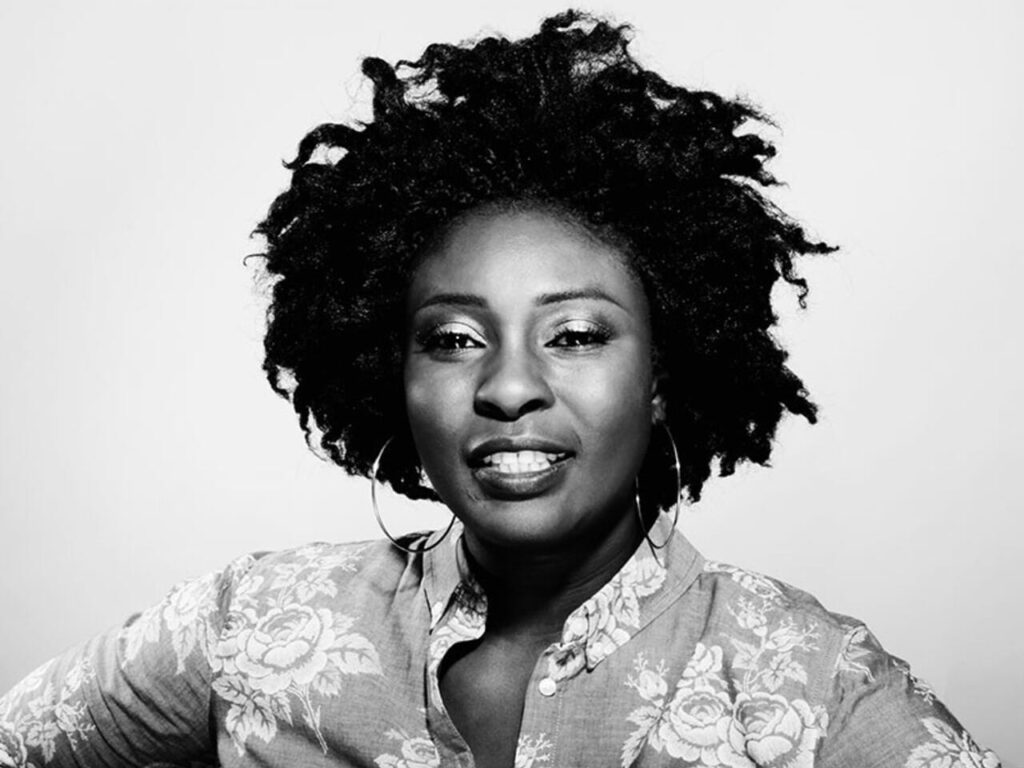
When Sia Tolno says that she found freedom through music, she isn’t speaking metaphorically. The singer grew up in Sierra Leone—and music kept her alive as war exploded through her country in the 1990s. And now, she’s found a new musical muse to expand her freedom even further: the Grateful Dead.
Tolno is the centerpiece of Afro Dead, a Europe-based collective that reimagines the Dead’s iconic material as Afrobeat anthems—truly like they’ve never been heard before.
“When I watch videos of the Grateful Dead playing, what I see is freedom and liberty. This is a perfect project for me,” says Tolno, calling from her apartment in Paris.
Today, she’s in the midst of recording a new album of her own righteous songs of freedom as well as the first official Afro Dead album. She dropped a blazing EP, Baya, in 2023. She often bursts into laughter recounting all this—still in disbelief that she’s come so far. And listening to her story, it’s easy to see why. The mere fact that she made it out of Sierra Leone alive was a miracle; that she went on to tour the world, win awards and record music for more than two decades is a blessing.
Tolno grew up in a strict household. Her father kicked her out when she was still a teen and she was taken in by her uncle in Freetown—who was also sheltering dozens of villagers fleeing the rebel and military violence brewing outside the city. At one point, she lived with 35 people in her uncle’s small, wooden house.
“In my father’s home, we had no right to laugh. That’s why I laugh so much today. Then at my uncle’s, I was surrounded by so many people, but I was all alone,” she remembers. “I was writing, and I began singing what I was writing. It was the only way I could feel free.”
At 19, she recorded some vocals for an ensemble releasing music supporting then-president Joseph Saidu Momoh. She needed the money; politics had nothing to do with it. Soon after, amid mounting clashes between rebel groups and the government, Tolno made the pivotal decision to flee once again. Along with a group of musicians, she left Freetown on foot. The group traveled village by village, playing music for shelter and food, until they reached neighboring Guinea.
Then, her uncle sent word that the rebels were looking for her. “Unfortunately, that pro[1]president music went off like a bomb in Sierra Leone; it was a hit,” she says. “Rebels went to my uncle’s home looking for me—under the bed, in the bathroom. They killed one of the other musicians, and they wanted to kill me. When I arrived in Guinea, I had no past, just sorrow.”
In Guinea, things began to change. She soon established herself as a powerful performer and songwriter; her debut solo album, La voix de la Forêt, was a hit across West Africa and beyond. By the end of 2008, she had become an audience favorite on the reality TV show Africa Star and caught the attention of a producer who offered her a different form of freedom: the chance to record in France. She leapt at the opportunity—but her writing remained laser-focused.
“Music, for me, was my weapon—my only weapon. I write about peace, war, justice, forced marriages, government corruption,” she says. “I’m less into love songs—I know there are so many other things to say.”
As if her place in the Afrobeat canon wasn’t already secure, in 2014, Tony Allen—the legendary drummer and Fela Kuti collaborator—produced her heavy-grooving album, African Woman. But these days, Tolno is dipping into a different form of collaboration— deconstructing and rebuilding some of the most iconic Grateful Dead songs.
Afro Dead was established by American-born guitarist Aaron Feder, who relocated to Barcelona well over a decade ago and founded his own studio, label and the internationally touring Alma Afrobeat Ensemble. He’d played with members of Phil & Friends, but Afro Dead is something new.
“Aaron is a very decent person and I respect him a lot. So when he said, ‘Sia, I have a project for you,’ I was interested,” she remembers. She fell in love with the Dead almost immediately—and they began recording Dead jams and her own songs simultaneously.
“I’ve sung so many songs in my life, and the Grateful Dead songs feel like conversations to me—like I’d heard them before, somehow. When I listened to ‘Stella Blue,’ I went back to the words and listened again. It’s poetic; it’s almost Shakespearean,” she says. “It was like going back to school for me.”
On “The Other One,” Tolno sounds possessed—her soulful vocals turning into a growl as the band churns that indelible riff underneath her. On the Harry Belafonte-via-Dead classic “Man Smart, Woman Smarter,” she sounds right at home, wryly winking her way through the parable lyrics. But as a singer who’s proudly written her own words for decades, Tolno made sure to climb inside the Dead songs— simple covers in a new genre won’t do.
“I’m comfortable in my own zone,” she says. “So this wasn’t easy. I’m a village girl; I had no clue who these people were. But I take the songs in my own way. That’s how I give the music the dignity it deserves.”
